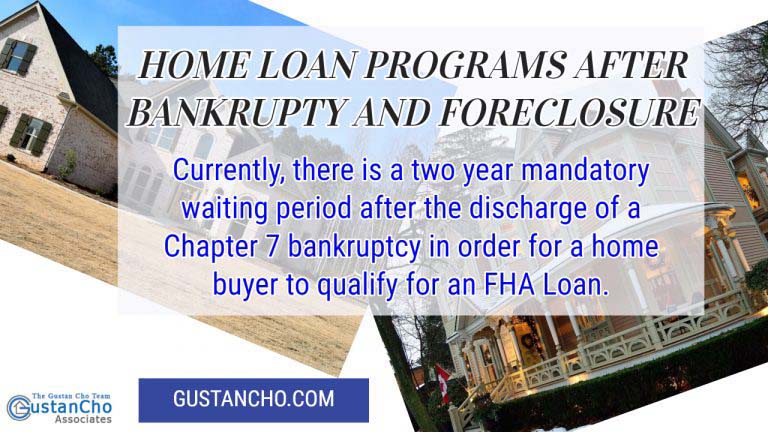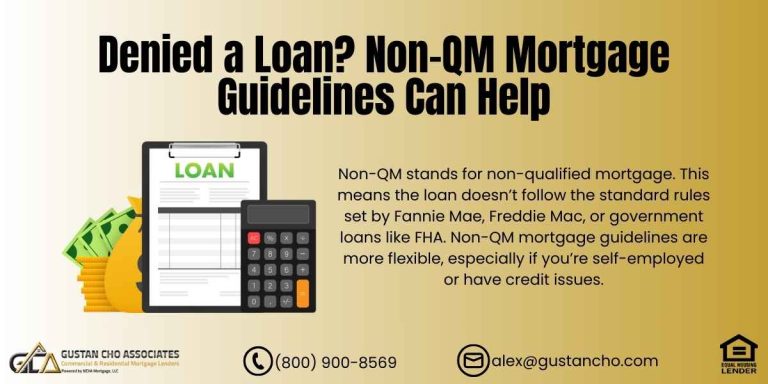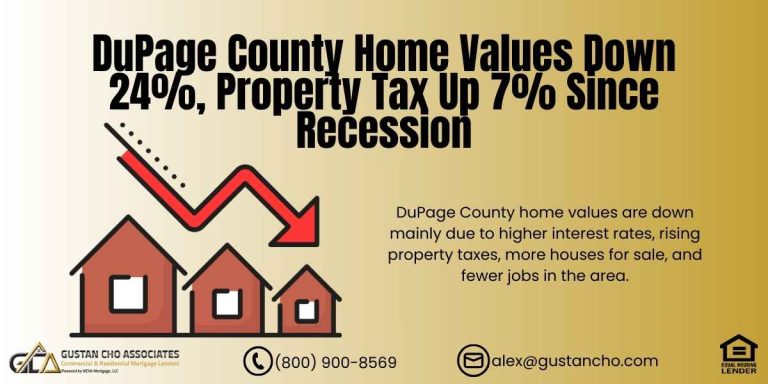This guide covers how to fix bad credit to qualify for a mortgage. How to fix bad credit to qualify for a home mortgage for homebuyers and homeowners: Mortgage borrowers can have prior bad credit and qualify for a mortgage. This holds true as long as they have been timely for the past 12 months. Lenders fully understand borrowers may have had extenuating circumstances in the past. However, lenders want to see borrowers have re-established themselves.Timely payments in the past 12 months are crucial.
How To Fix Bad Credit To Qualify For Manual Underwriting
FHA and VA loans allow manual underwriting. On manual underwriting, borrowers need to have been timely for the past 24 months. Borrowers can qualify for a mortgage after bankruptcy and/or foreclosure. However, to get mortgage approval, borrowers cannot have any late payments after bankruptcy, foreclosure, deed in lieu of foreclosure, short sale. Lenders also want to see re-established credit after bankruptcy and/or foreclosure.
How To Fix Bad Credit Versus Timely Payments
Lenders allow prior bad credit to qualify for a home mortgage. Therefore, credit repair is not needed. Credit repair is a waste of time and money if the reason is to qualify for a mortgage. Hiring a credit repair company can do more damage than good if it is being done to qualify for a home loan.
You cannot have credit disputes during the mortgage process on FHA loans. HUD requires all derogatory credit disputes need to be retracted before the mortgage process can start.
By credit repair, we are talking about doing a credit dispute to remove negative items. An older collection or charged-off account that is over two years old has little to no impact on your credit scores. Borrowers can qualify for a home mortgage after bankruptcy or a housing event. However, there are minimum waiting period requirements after bankruptcy or foreclosure.
Steps on How To Fix Credit To Get Mortgage Approval
Having to fix bad credit to qualify for a home mortgage is a crucial step in homebuying. In this section, we will cover qualifying for a mortgage: Get copies of credit reports from all three major credit bureaus (Equifax, Experian, and TransUnion). Review your reports for errors, inaccuracies, or any fraudulent accounts.
Establish a budget to manage your finances and ensure you have enough money to cover your expenses and make on-time payments.
If you find errors on your credit reports, do a credit dispute with supporting documents and data. Consistently pay all monthly bills on time, including credit cards, loans, and utilities. Timely payment history is a significant factor in your credit score makeup. Pay down your outstanding debts, especially high-interest credit card balances. Reducing your credit card balances can lower your credit utilization ratio, positively impacting your credit score.
How Much House Can You Afford
Avoid taking on new debts or opening new credit accounts while working on improving your credit. If you’re struggling to make payments, consider contacting creditors to discuss options or settlements.
If you have no credit or limited credit history, consider opening a secured credit card or becoming an authorized user to build a positive credit history.
Use your credit cards responsibly and avoid maxing them out. Keeping your credit card balances low is a positive signal to creditors. Keeping older credit accounts open can positively impact the length of your credit history. If your credit situation is complex or you need help proceeding, consider working with a credit counseling agency or a credit repair service. Improving your credit score takes time. Be patient and consistent in your efforts.
How To Fix Bad Credit: The Importance of Credit Scores and Payment History Applying For a Mortgage
Credit scores and payment history are the two most important factors lenders rely on when making a mortgage approval decision. Good payment history and high credit scores determine the person’s financial responsibility and stability.
The waiting period requirement depends on the particular loan program. The most important factor when qualifying for a mortgage is to have been timely in the past 12 months. Preferably, timely in the past 24 months.
Higher credit scores mean less risk for lenders. Lower risk for lenders means lower mortgage rates. Mortgage programs have a minimum credit score requirement. Lower credit score borrowers will get higher mortgage rates. Borrowers with under 600 FICO may also need to pay discount points.
How To Fix Bad Credit: Credit Scores Explained
There are three major credit reporting agencies: Experian, Equifax, Transunion. Each consumer has a credit score from each of the three major credit bureaus. Each credit bureaus has its own way of rating consumers. The credit bureaus will take many factors into consideration prior to rendering a consumer’s credit scores. Mortgage lenders will use the middle credit score of a borrower as the determining credit score to qualify borrowers and quote rates and terms. Credit Scores range from a low of 350 to a high of 850.
How Credit Scores Are Rated
Below is the credit score ranges and its rating:
- Credit Score of 720 or higher is rated as excellent
- Credit Scores between 680 to 719 is rated as a good credit score
- Credit Scores between 620 to 679 is rated as a fair credit score
- Credit Scores under 619 is rated as a poor credit score
Once you’ve made significant progress in improving your credit, you can start exploring mortgage options and working with a lender to determine your eligibility and the types of mortgages available to you. Remember that different lenders may have different requirements, so it’s a good idea to shop for the best mortgage terms that fit your financial situation.
How To Fix Bad Credit By Having a Mix of Credit Tradelines
Credit scores range from a low of 350 to a high of 850. Credit scores are based on 5 factors: Consumer payment history. Balance or amount owed versus credit limit. The longevity of the credit tradelines. Mix of credit. New accounts and credit inquiries. 35% of the scores are derived by consumer credit history: Timely payments and no missed payments. 30 day late payments will plummet your credit scores. Outstanding collections and charged-off accounts will impact your credit scores.
30% of your credit scores are based on the amount owed: The balance of your credit card versus the credit card limit is called the credit utilization ratio. To maximize your credit scores, keep your credit utilization ratios under 10%.
15% of your credit scores are based on the longevity of the credit tradelines: The longer you had your credit card and/or revolving accounts, the better it is for your credit scores. 10% of your credit scores are based on the variety of credit you have:. You should have varied types of credit and not just one type. Have credit cards, auto loan, installment loans, home loans, personal loans. 10% of your credit scores are based on new credit and credit inquiries. New credit accounts and new credit inquiries only have a 10% factor on your credit scores.
Qualifying For a Home Mortgage With a Lender With No Overlays
Credit scores vary from month to month. The best way to maintain great credit and high credit scores is to make sure you pay your monthly payments on time. Keep all of your credit card balances below 10% of your credit limit. Having three to five credit cards will maximize your credit scores.
If you have lower scores or bad credit, try getting three to five secured credit cards with a $500 credit limit for maximum optimization. If you do not have a car loan, get an installment loan through Credit Builder Program like www.self.inc.
Gustan Cho Associates is a five-star national mortgage company licensed in multiple states with no lender overlays. For more information about maximizing your credit to qualify for a home mortgage or to qualify for a mortgage, please contact us at Gustan Cho Associates at 800-900-8569 or text us for a faster response. Or email us at gcho@gustancho.com. The team at Gustan Cho Associates is available 7 days a week, evenings, weekends, and holidays.










